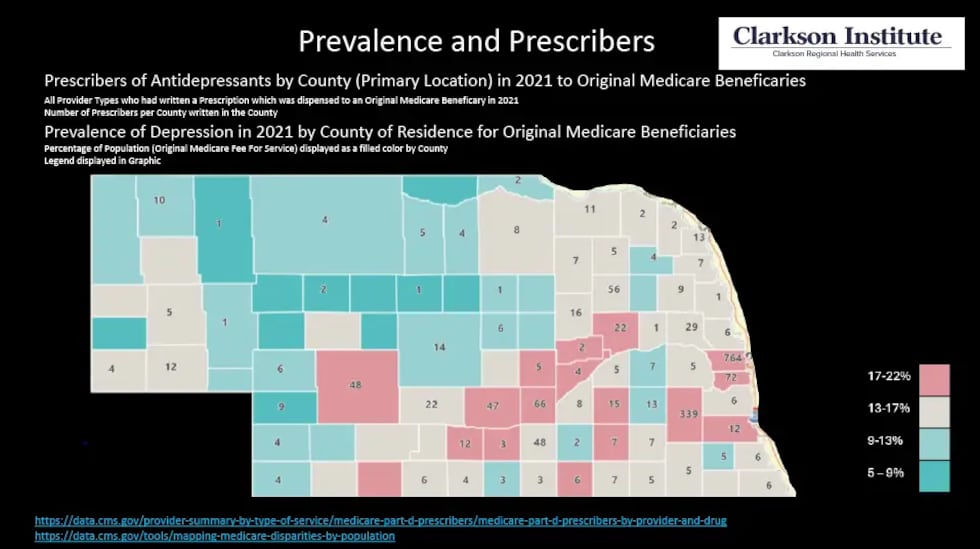LINCOLN, Neb. (KOLN) — Statistics from the National Alliance on Mental Health show that more than 376,000 Nebraskans have a mental illness, but more than a million live in communities without enough trained professionals to help.
Bridges to Mental Health is a workforce training program believed to be the first of its kind that helps non-mental health professionals bridge that gap in care. They came to the April Sampson Cancer Center in Lincoln this week to share what they know.
It’s difficult to recruit professionals into psychiatry, with long hours, education barriers and training requirements.
Statistics from UNMC show the state’s psychiatry workforce grew 8% from 2020 to 2024, but both rural and urban areas are still underserved.
And nationally, the average wait time for mental health care is at least 48 days.
 A map showing prevalence and prescribers provided by Bridges to Mental Health(Bridges to Mental Health)
A map showing prevalence and prescribers provided by Bridges to Mental Health(Bridges to Mental Health)
Bridges to Mental Health brought in professionals from around the country to teach non-psychiatry, frontline health care workers how to identify and treat those they can.
The two-day seminar focused on depression, anxiety, ADHD and alcohol use disorder.
“I think a lot of people have a good bit of knowledge already,” said Dr. David Rubin from Massachusetts General Hospital. “Mostly what I think the effect is they feel more confident in using some of these medications and doing these types of interventions.”
That confidence is invaluable for providers like Miranda Mammen, who said the confidence and connections she’s gained will help in everyday nursing.
“The impact that it has on my care is huge,” Mammen said. “Even if a patient’s not there for mental health, I’m always, always looking at some form of mental health for them.”
Bridges to Mental Health recently celebrated their two-year anniversary, training more than 570 professionals in that time, and they have trainings scheduled in Omaha and in McCook in the coming months.
If you or someone you know is experiencing a mental health crisis, call 988 anytime for help.
Click here to subscribe to our 10/11 NOW daily digest and breaking news alerts delivered straight to your email inbox.
Copyright 2025 KOLN. All rights reserved.
